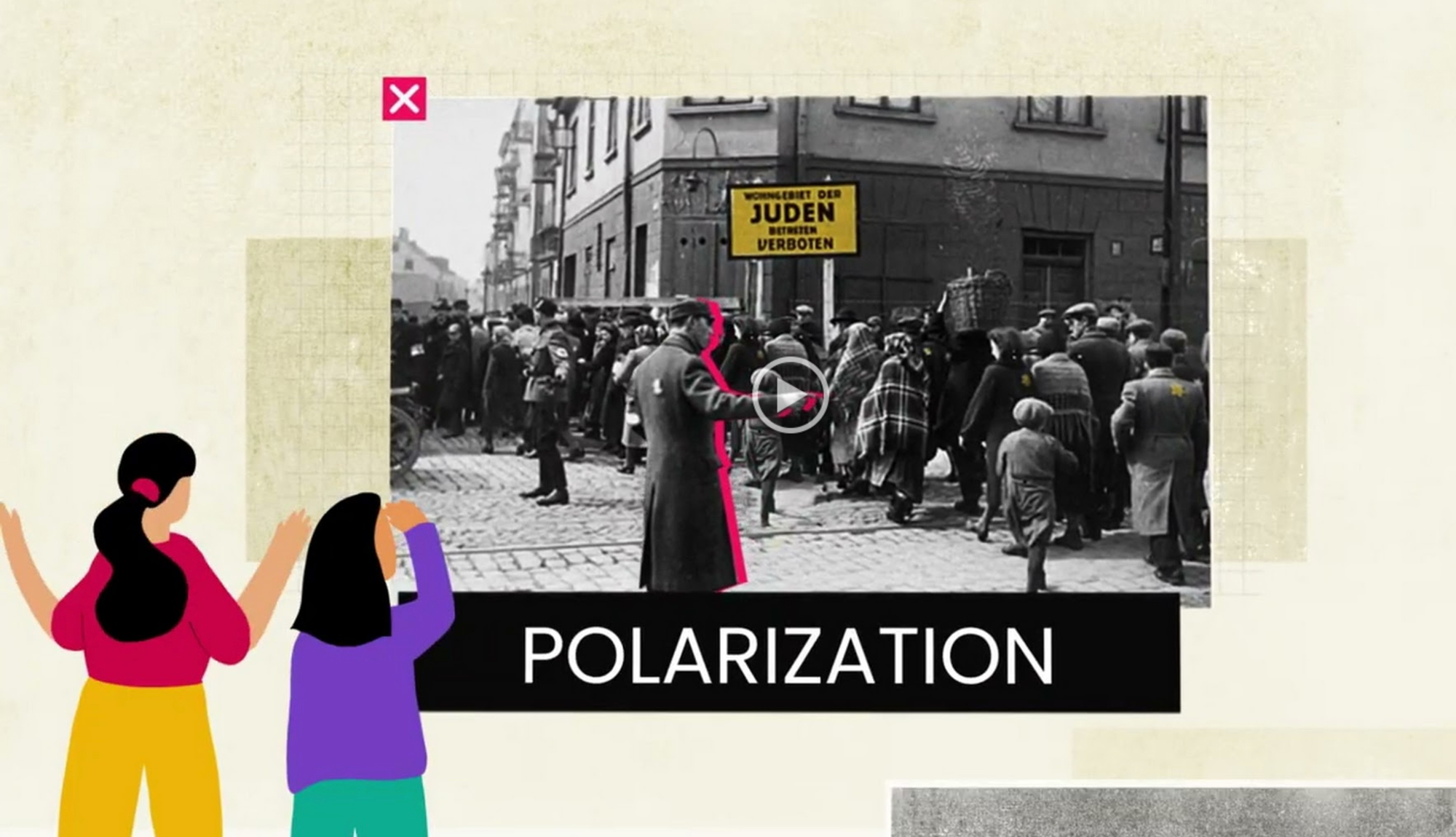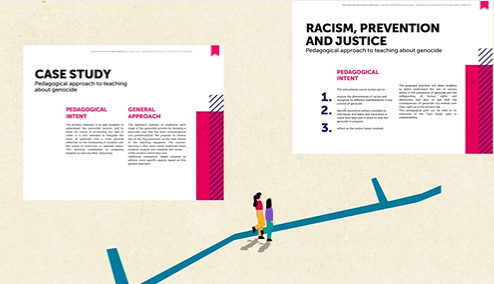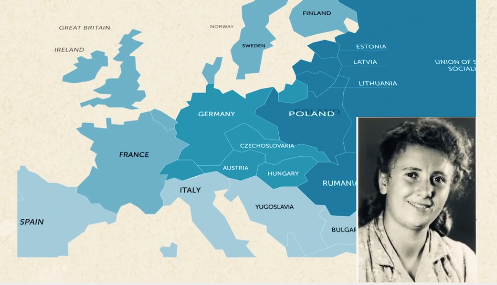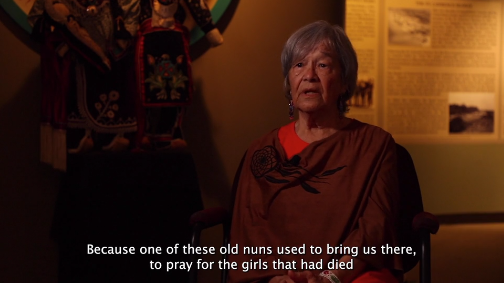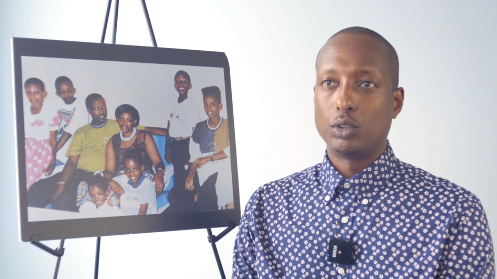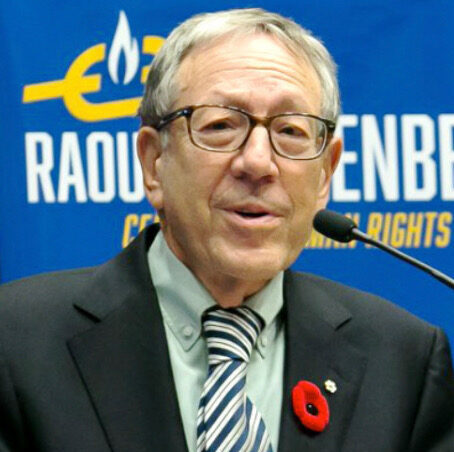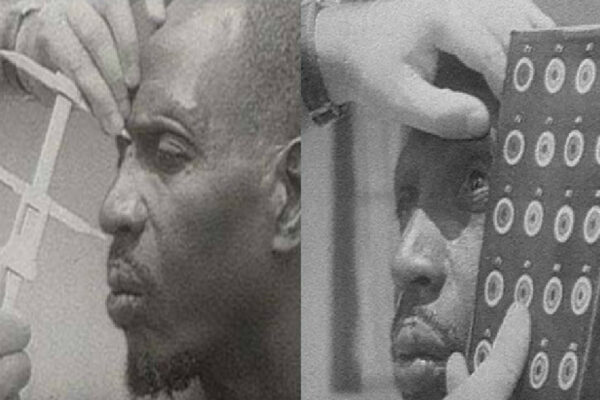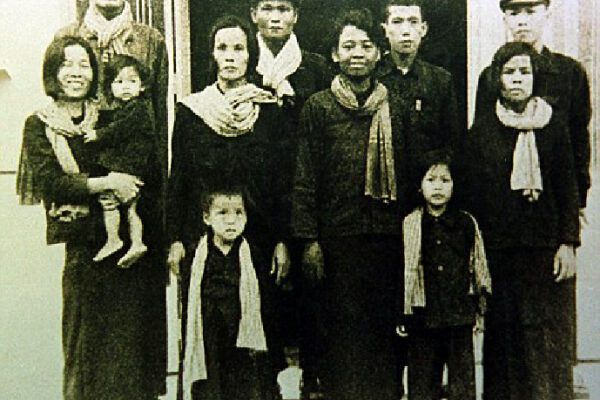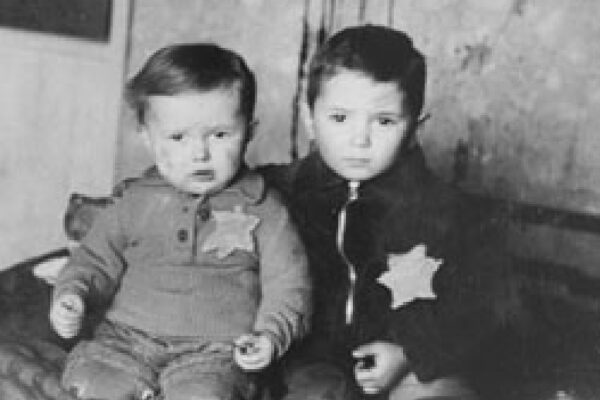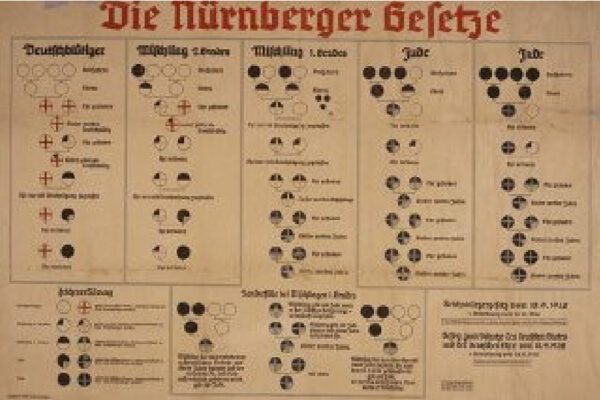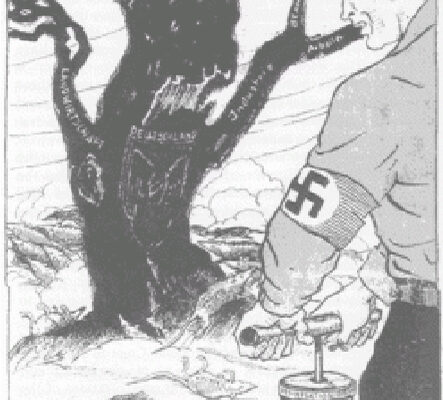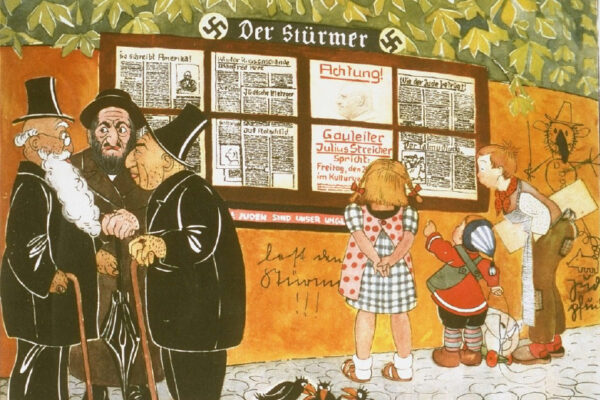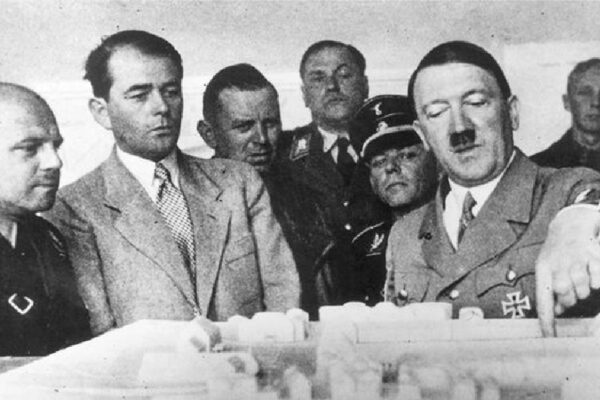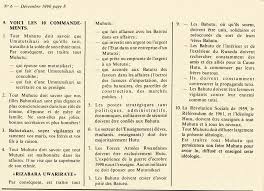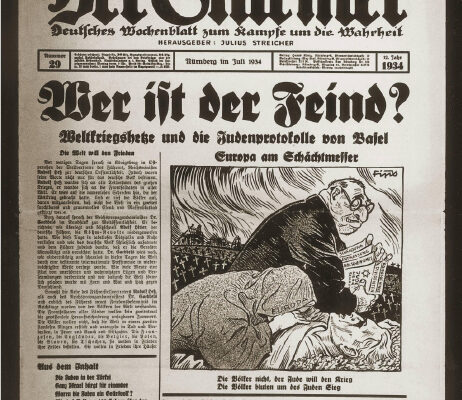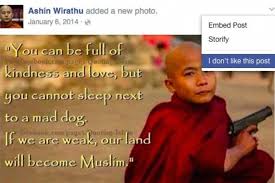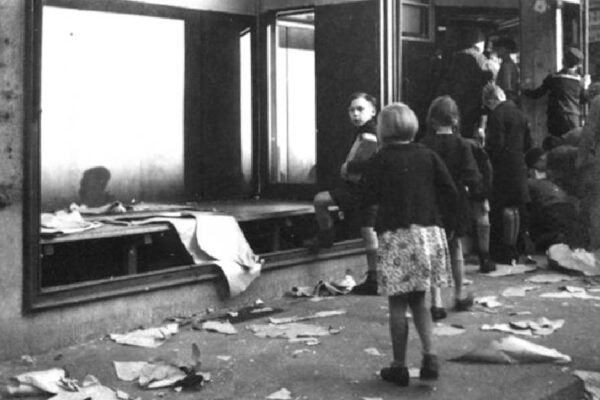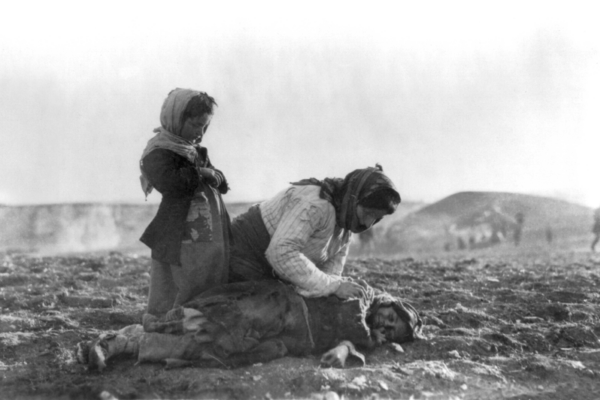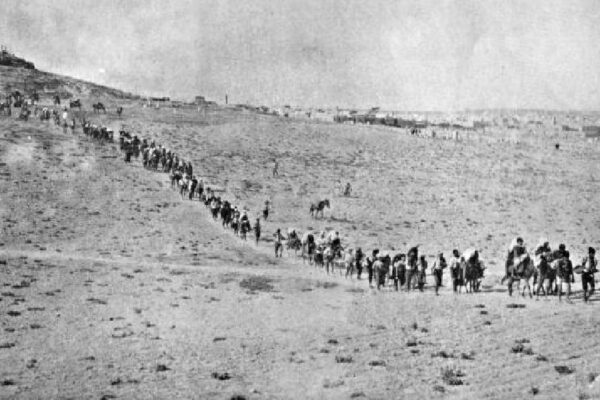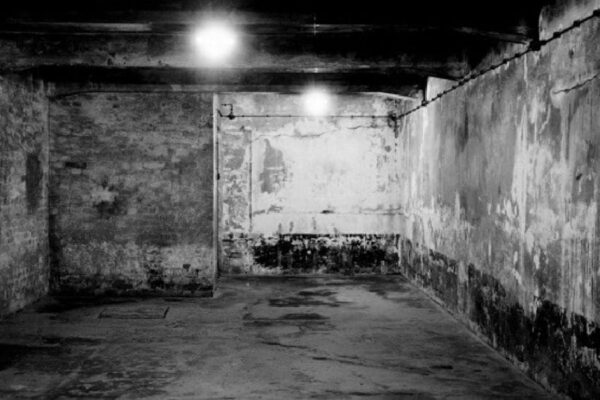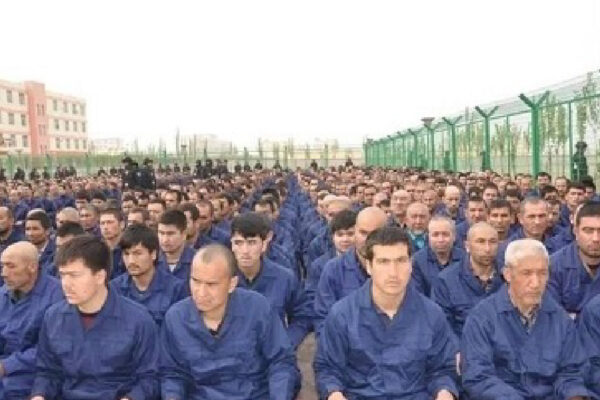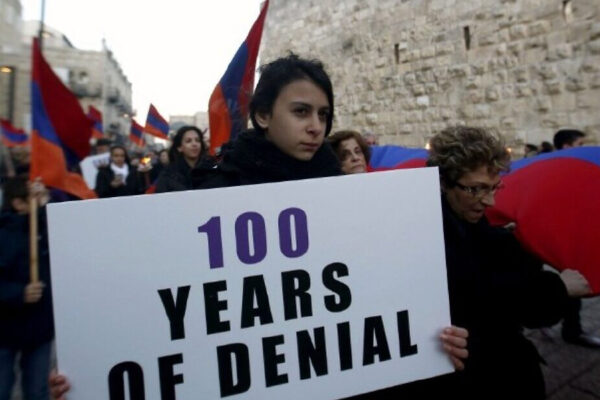From the roots of intolerance, education yields empathy and knowledge
The mission of The Foundation for Genocide Education is to collaborate with governments and educational experts to ensure that the history of genocide and the steps leading to it are taught in high schools across Canada and the United States.
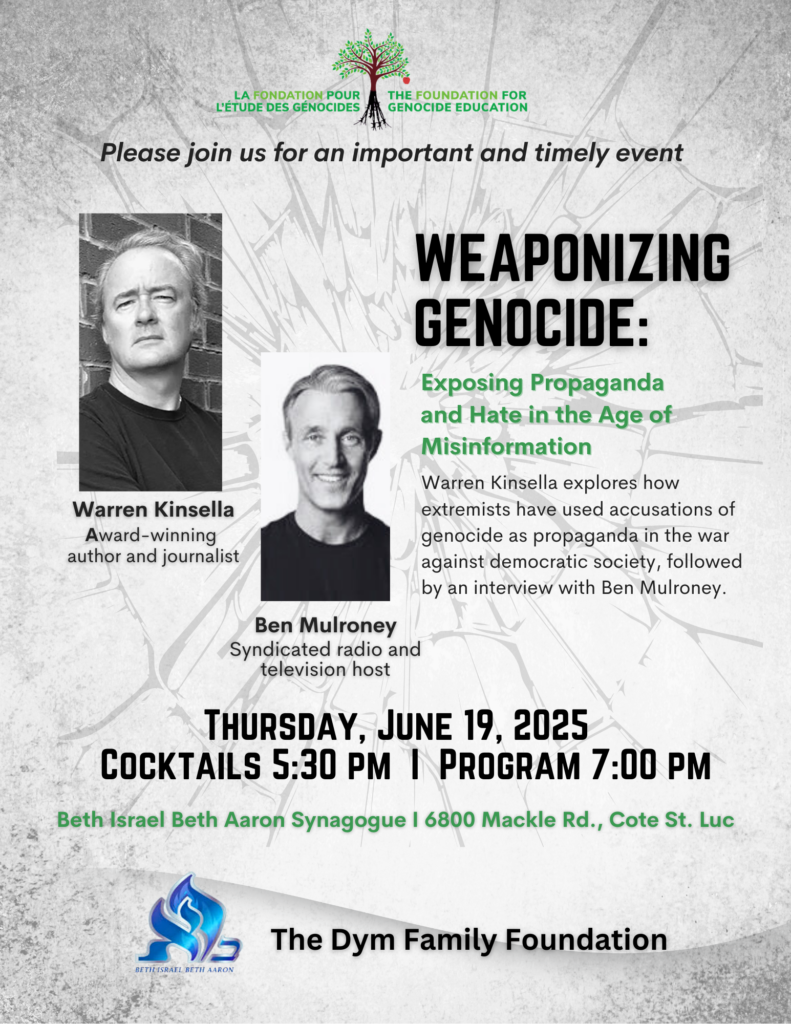
2025 Fundraiser: June 19, 2025
Join us for an important and timely event featuring acclaimed journalist and author Warren Kinsella in a discussion about genocide, propaganda, and the war against democratic values. Moderated by syndicated radio and television host Ben Mulroney. This promises to be an event to remember!
Date: June 19, 2025
Time: Cocktails - 5:30 pm. Program: 7:00 pm
Location: Beth Israel Beth Aaron Congregation
6800 Mackle Rd, Cote St Luc, Quebec H4W 1A4
Tickets: $300 (partial tax receipt)
For more information, please call 514-503-3559
Announcements
In the News
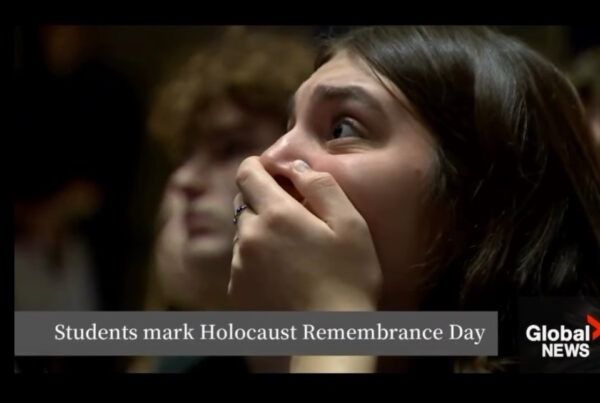
Montreal students troubled by antisemitism 80 years after Holocaust: Global News, January 27, 2025
Monday marked the 80th anniversary of the liberation of Auschwitz, and, across Montreal, members of the Jewish community took time to remember the Holocaust. In marking the day, students at one school said they were troubled that hate and antisemitism were still a reality, Phil Carpenter reports.
In the News
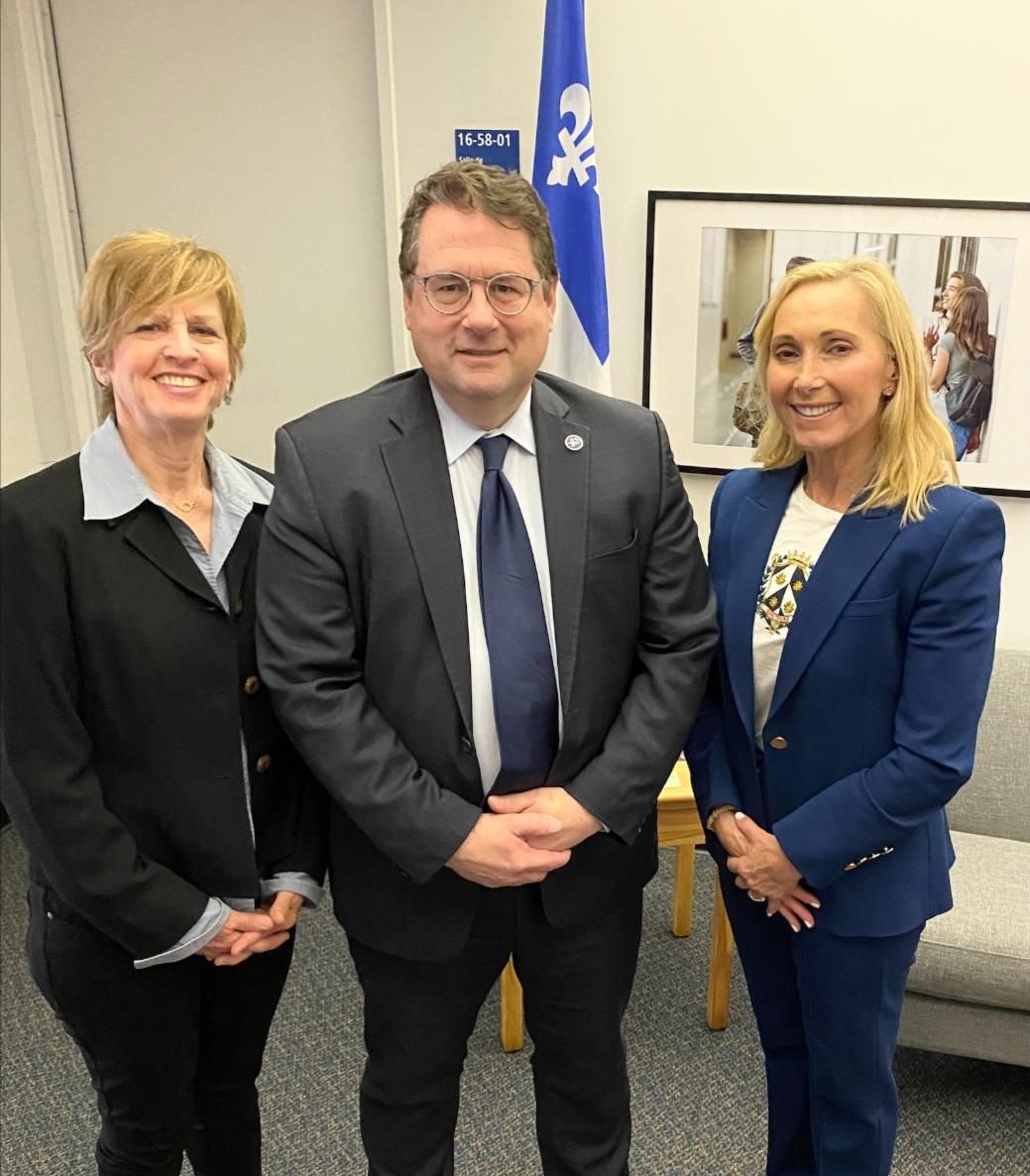
The calls are getting louder for mandatory Holocaust education in the province of Quebec: The Suburban - January 25, 2025
For many Quebec students, the Holocaust is a remote concept, one which is barely connected to their lives or worldviews.
That’s problematic, says Marcy Bruck, communications director of the Montreal-based Foundation for Genocide Education. In some schools, she says, “they might just read Anne Frank and that’s it,” even though “Grade 6 is an excellent entry point” for more profound learning…
In the News
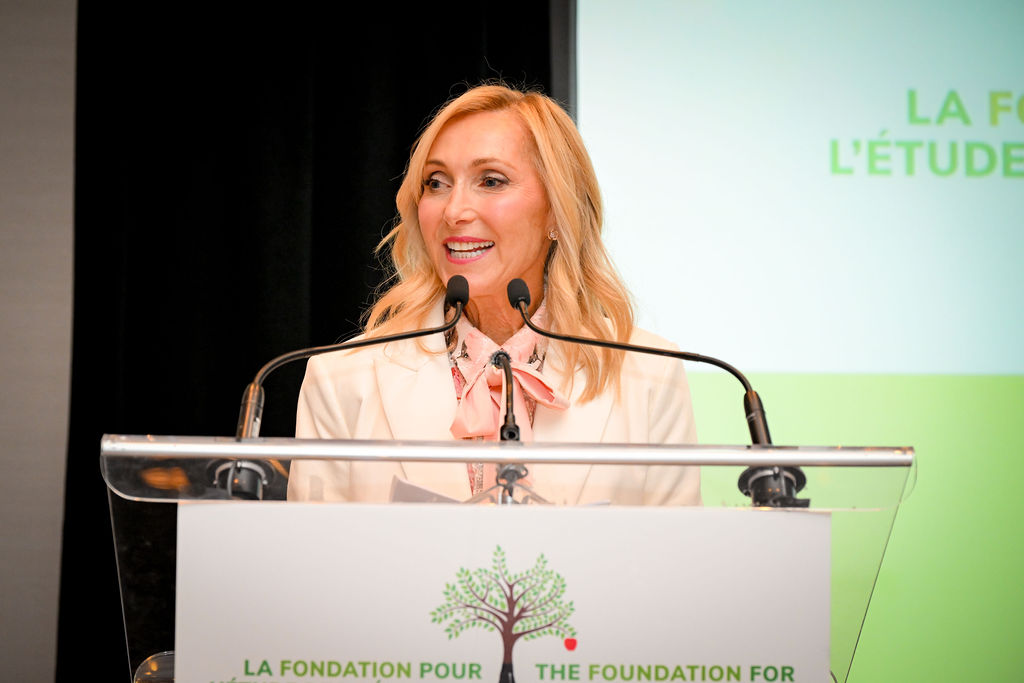
Genocide education is lacking, group says:
Montreal Gazette, Sept. 3, 2024
QUEBEC – A foundation working to ensure better knowledge of genocides is urging the Quebec government to make the subject a mandatory high school curriculum module, including an exam question on the topic for students at the end of the year…
New Program

Filmed Presentation Archive
In response to the overwhelming demand for our presentations by schools across Canada, we now offer a selection of our presentations filmed live at high schools in the province of Quebec. This unique online archive library will allow students in areas where we cannot visit in person to watch our presenters share their stories of survival or the stories of their parents, grandparents, or even great-grandparents.
Our Survey in the News
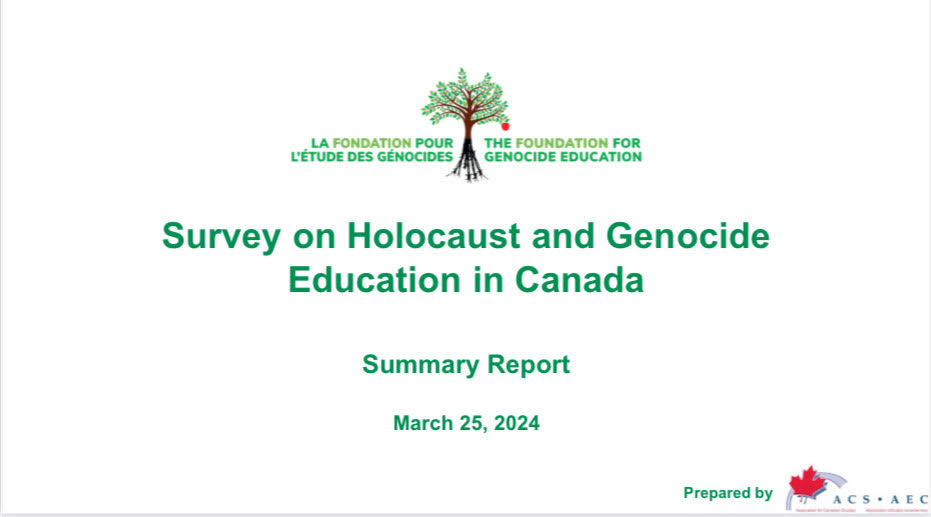
Canadian Teachers Call for More Holocaust and Genocide Education
Working with the Association for Canadian Studies, The Foundation for Genocide Education commissioned a survey of over 1000 high school educators across Canada on the state of education on the Holocaust and other genocides. Our findings have received significant media attention, underlining the importance of addressing these educational challenges.
EMSB Collaboration
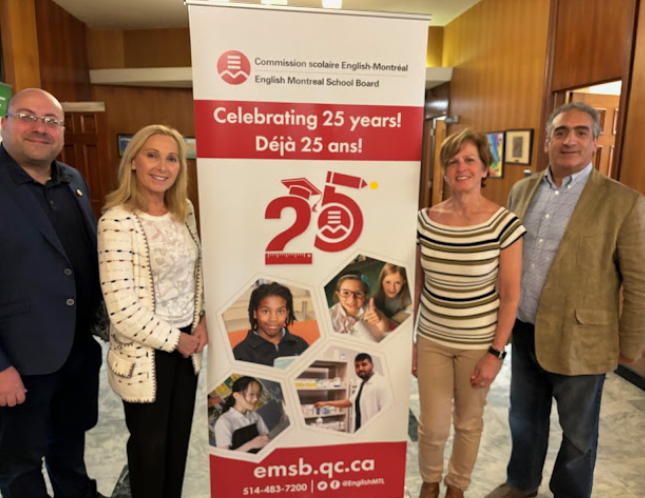
Collaborating for Holocaust & Genocide Education
April 9th: Discussions with EMSB Chair Joe Ortona, Commissioner Julien Feldman, and the FGE highlight a shared commitment to equipping educators with essential tools to teach about historical genocides and promote awareness and prevention. As an example, Naomi Tencer’s recent presentation at Rosemount High School is a testament to our school presentation program’s continued success in educating students about the Holocaust and genocide.
Special Presentation
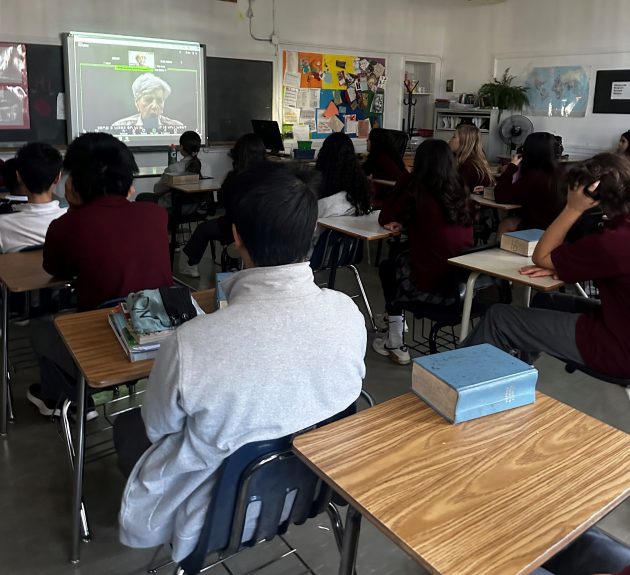
Kristallnacht presentation reaches 500 EMSB students
On Friday, November 15. FGE presenter Barbara Cieply shared her late mother Regina Kleinberg-Cieply’s gripping story of survival during the Holocaust through a special Zoom presentation broadcast to all 500 students at Royal Vale High School. This event was organized as part of the EMSB’s Holocaust Education Program.
In addition to keeping the stories of survivors alive, our presentations encourage young people to make connections between the Holocaust and contemporary examples of antisemitism. This awareness is critical to develop critical thinking and empathy in the next generation.
New Book 'Genocide: Personal Stories, Big Questions'
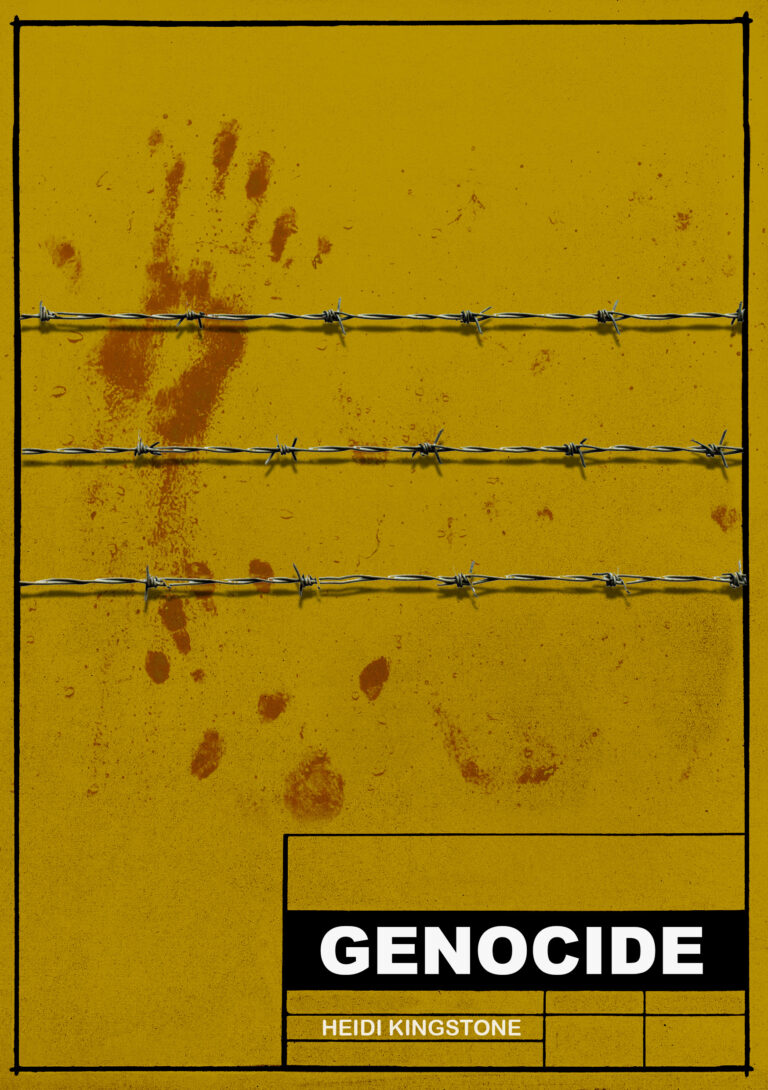
Genocide through the eyes of a journalist
Genocide: Personal Stories, Big Questions, written by London-based journalist Heidi Kingstone, makes a difficult topic accessible for anyone to read. The book builds on Kingstone’s 20 years as a foreign correspondent for national and international media. It is a collection of stories centred around people that Kingstone has met, observing connections that weave their way through relationships, cultures, and continents across time, leading to parallels between the past and present. Available now on Amazon.
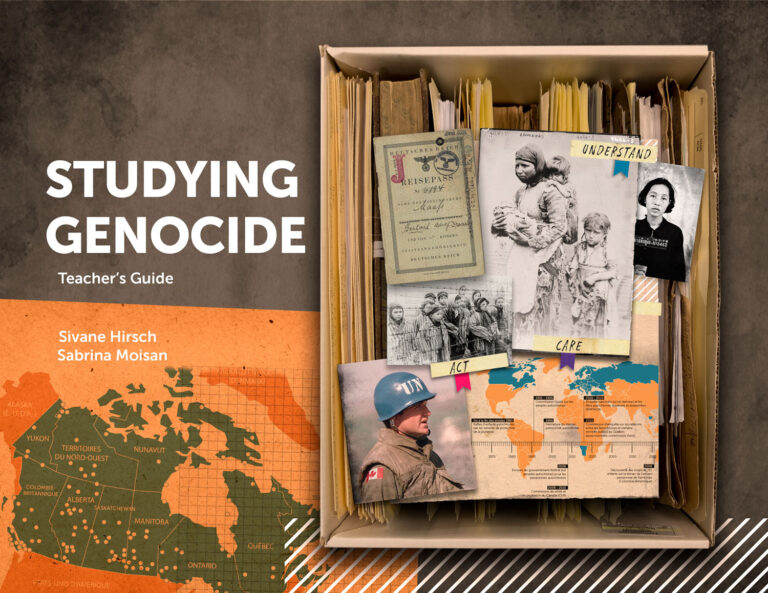
The new guide ‘Studying Genocide’ is now available online in both English and French. A collaboration between The Foundation for Genocide Education, the Université de Québec à Trois Rivières, the Université de Sherbrooke, and the Montreal Holocaust Museum, and funded by the Quebec Education Ministry, it features case studies of 9 significant 20th century genocides, key definitions, video testimonials of genocide survivors, and lesson plans. A unique breakthrough in genocide education for teachers across Canada and the United States.
NOW AVAILABLE: NEW GUIDE 'STUDYING GENOCIDE'
VIDEOS PRODUCED BY THE FOUNDATION FOR GENOCIDE EDUCATION FOR THE GUIDE
A MESSAGE FROM HONOURABLE PROFESSOR IRWIN COTLER
Irwin Cotler is the Founder and Chair of the Raoul Wallenberg Centre for Human Rights, an Emeritus Professor of Law at McGill University, former Minister of Justice and Attorney General of Canada and longtime Member of Parliament, and an international human rights lawyer. He has chaired inter-parliamentary groups for human rights in Iran and Darfur, and is a leading author of an independent report on China’s genocide against its Uyghur minority. Mr. Cotler was also Canada’s former special envoy on preserving Holocaust remembrance and combating anti-Semitism, and recognizes the vital importance of education to prevent ignorance and intolerance. We are honoured to have Mr Cotler’s on the Foundation’s board.
Defining Genocide
Genocide, as defined by the United Nations in the 1948 Convention on the Prevention and Punishment of the Crime of Genocide*, refers to any of the following acts committed with intent to destroy, in whole or in part, a national, ethnical, racial or religious group:
b. Causing serious bodily or mental harm to members of the group.
c. Deliberately inflicting conditions of life calculated to bring about its physical destruction.
d. Imposing measures intended to prevent births within the group.
e. Forcibly transferring children of the group to another group.
Genocides around the world
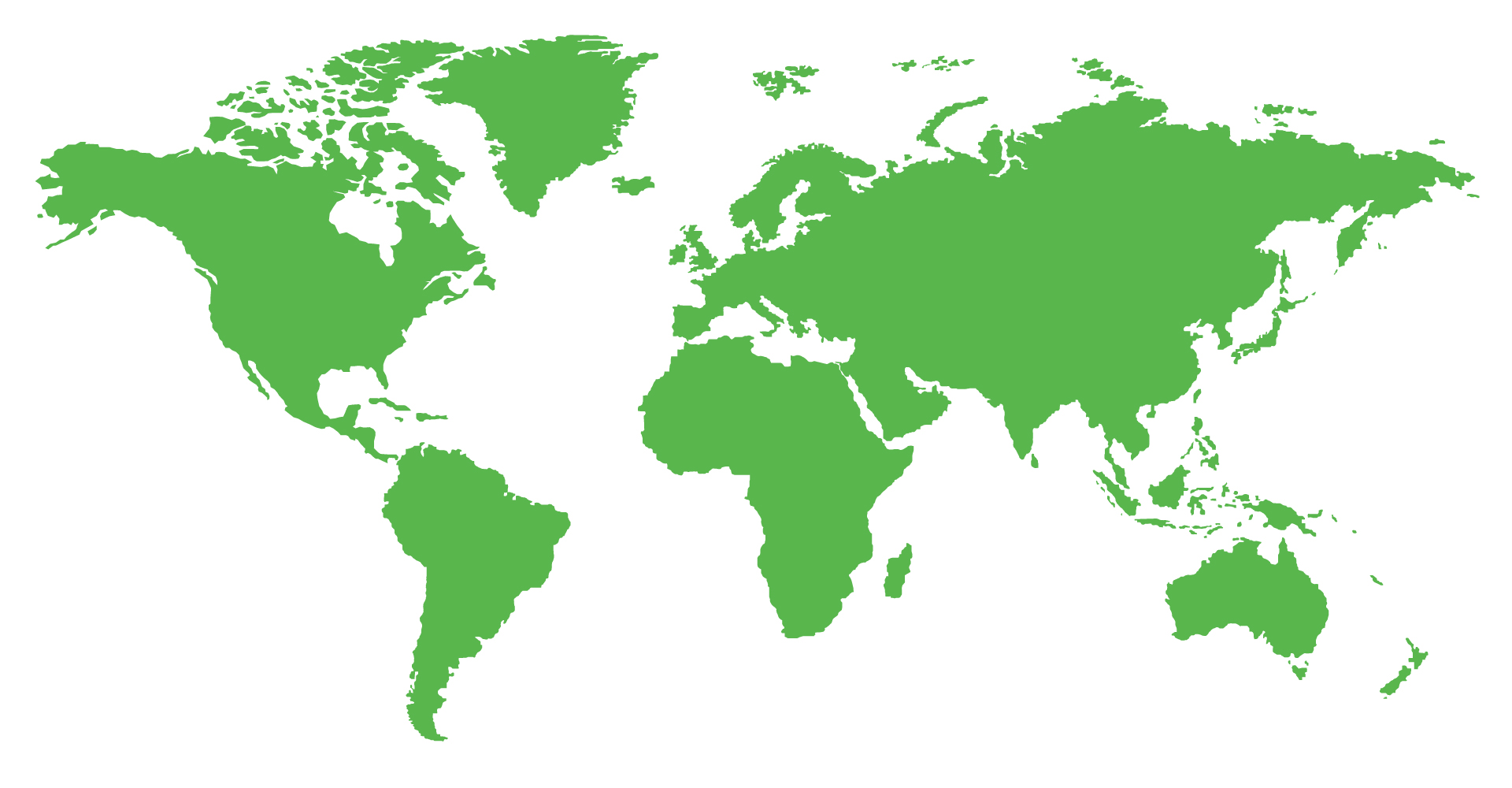
CANADIAN RECOGNIZED GENOCIDES
3. THE HOLOCAUST
The Holocaust, also known as the Shoah, was the systematic persecution and mass murder of 6 million Jews by Nazi Germany and its collaborators from 1933 to 1945. Around two-thirds of Europe’ Jewish population was killed. The murders were carried out in mass shootings, through forced labour in concentration camps and gas chambers in extermination camps.
4. 1994 GENOCIDE AGAINST THE TUTSI IN RWANDA
The 1994 Genocide against the Tutsi in Rwanda was the planned campaign of mass murder of 800,000 Tutsis in Rwanda perpetrated by the Hutus that occurred in April–July 1994.
10. THE FIRST NATIONS
The First Nations Cultural Genocide is the history of the violent acts and assimilatory policies committed against First Nations across Canada, such as the residential schools. Between 1880 and 1996, 150,000 First Nations students were forcibly removed from their families and incarcerated in residential schools rife with abuse.
17. THE UYGHURS AND OTHER TURKIC MINORITIES
The Uyghur genocide involves the systematic oppression of up to two million Uyghur Muslims in Xinjiang by the Chinese Communist Party (CCP). Since 2017, up to two million Uyghurs have been detained in “re-education camps,” facing forced assimilation, human rights abuses, forced sterilizations, suppression of Uyghur births.
OTHER RECOGNIZED GENOCIDES
6. CAMBODIA
The Cambodian genocide (1975-1979) was the systematic persecution and killing of 1.5 to 2 million Cambodians by the Khmer Rouge under the leadership of Pol Pot, who radically pushed Cambodia towards communism.
8. THE HERERO AND THE NAMAS
The Herero and Nama genocide was waged by the German Empire against the Ovaherero, the Nama, and the San in German South West Africa (now Namibia). It occurred between 1904 and 1908, and over 80% of the Nama and Herero population was killed.
14. YAZIDI GENOCIDE
The genocide of the Yazidis was perpetrated in 2014 by the Islamic State of Iraq and the Levant (ISIS) in northern Iraq. The genocide led to the exile of the Yazidis from their ancestral land. Thousands of Yazidi women and girls were forced into sexual slavery by the Islamic State, and thousands of Yazidi men were killed.
15. ISAAQ GENOCIDE
The genocide of the Isaaq clan in Somalia occurred in the 1980”s and was perpetrated by the northern Somali government. The clan was targeted through violence and arrests mainly due to their opposition to the government that was in place and around ten thousand people lost their lives as a result. The goal was to ensure the complete disappearance of this ethnic group..
The Ten Stages of Genocide
1. Classification
Individuals or a group in a position of authority distinguishes people into “us” and “them” according to ethnicity, race, religion or nationality.
Example 1:
In the 1930s, Belgian colonial authorities implemented a system of identity cards in Rwanda, imposing a ethnic belonging to Tutsi, Hutu and Twa. This identification policy was taken over by Hutu governments after 1962, further exacerbating tensions between communities.
Example 2:
A big data program in China’s Xinjiang region is used to identify and further discriminate Uyghurs Muslims and other Turkic minorities based on their religion. After being targeted, they are sent to “re-education” camps.
Prevention:
Promote tolerance and inclusion through laws and policies that ensure human rights and civil rights for all.
Sources: Montreal Holocaust Museum, Genocide Watch, De Forges, https://www.hrw.org/news/2020/12/09/china-big-data-program-targets-xinjiangs-muslims
2. Symbolisation
The targeted group is assigned names, symbols or colors. The classification is enhanced by a visual manifestation.
Example 1:
In Nazi-occupied Europe, Jews were forced to wear a yellow star.
Example 2:
In Cambodia, the Khmer Rouge forced people from the “Eastern Zone” to wear a blue-and white checked scarf.
Prevention:
Legally prohibit hate symbols and speech that discriminate against any group.
Sources: Montreal Holocaust Museum, Genocide Watch, Holocaust Memorial Day Trust
3. Discrimination
The dominant group uses its political and legal power to deny the rights of the less powerful groups, such as civil rights, voting rights and citizenship. The dominant group is driven by the idea of extending or monopolizing power.
Example 1:
In Nazi Germany, the Nuremberg Laws of 1935 stripped Jews of their German citizenship and denied them access to several jobs and marriage with non-Jewish Germans.
Exemple 2:
Until 1985 in Canada, the Indian Act prevented a First Nations woman from retaining her “Indian status” and the rights that flowed from it after marrying a non-status man. In addition, Aboriginal people did not gain the right to vote at the federal level until 1960.
Prevention:
Legally prohibit discrimination on the basis of nationality, ethnicity, race or religion and ensure everyone the right to citizenship and other fundamental rights.
Sources: Montreal Holocaust Museum, Genocide Watch, Holocaust Memorial Day Trust, https://www.thecanadianencyclopedia.ca/fr/article/droit-de-vote-des-peuples-autochtones, https://www.thecanadianencyclopedia.ca/en/article/indian-act
4. Dehumanisation
Denying the humanity and dignity of the target group in the eyes of the perpetrators and the rest of the population. Through propaganda and public speeches, members of the discriminated group are compared to animals, vermin, insects or diseases.
Example 1:
During the genocide against the Tutsi in Rwanda, the “Radio-Télévision des Mille Collines” contributed to the dehumanization of the Tutsi by comparing them to “cockroaches”.
Example 2:
In the same way, Nazis via propaganda and speeches equated Jews with “vermin”.
Example 3:
Since 2013, hate speech has been used by different ethnic and political groups in South Sudan. The Nuer group use different expressions to compare the targeted group as illiterate or barbaric people.
Prevention:
Denounce and punish hate speech and incitement to genocide crimes.
Sources: Montreal Holocaust Museum, Genocide Watch, https://www.lemonde.fr/afrique/article/2019/04/08/au-rwanda-les-funestes-echos-de-la-radio-des-mille-collines_5447242_3212.html, https://www.peacetechlab.org/south-sudan-lexicon
5. Organisation
A state, army units or militias organize genocidal killing plans.
Example 1:
On April 24, 1915, on the orders of the Ottoman government, hundreds of intellectuals and influential Armenians were arrested. These members of the Armenian elite were murdered in the following weeks.
Example 2:
After implementing a bureaucratic system, consisting mainly of ministries and an army, the Nazi party organized a progressive process of destruction, including “expropriation”, “concentration” and the mass killing of Jews.
Example 3:
Since 2015, the government of Burundi has been training a youth militia (the Imbonerakure) to kill political opponents.
Prevention:
Imposition by the UN of arms embargoes on countries involved in the genocidal massacres and creation of commissions of inquiry. Deny foreign travel visas to the leaders of the genocidal group and outlaw membership to the group.
Sources: Montreal Holocaust Museum, Genocide Watch, Atarian, 1997, Hilberg 1988, http://genocide.mhmc.ca/fr/burundi
6. Polarisation
Propaganda is used by hate groups and extremists to amplify the division between groups. Moderate members of the dominant group are targeted and executed and laws prohibit interactions between groups.
Example 1:
Messages of hate about Jewish people were spread in the newspaper Der Stürmer by the Nazis.
Example 2:
“The Hutu Ten Commandments” were published in the Kangura magazine, inciting hatred against Tutsi and silence of moderators.
Example 3:
In 2018, Facebook shut down several hate propaganda accounts and pages run by the Myanmar militaries. The accounts incited anti-Muslim hatred.
Prevention:
Protect the human rights of target group members and moderate leaders. Seize the assets of the genocidal group and oppose the disarming of opposition groups.
Sources: Montreal Holocaust Museum, Genocide Watch, Holocaust Memorial Day Trust, https://ici.radio-canada.ca/nouvelle/1129952/rohingyas-propagande-haine-internet-reseaux-sociaux-birmanie
7. Preparation
Perpetrators plan the genocidal killings. At this stage, the genocide may be disguised as counter-insurgency or self-defense with leaders often claiming “if we don’t kill them, they will kill us”. The genocidal group will use euphemisms to disguise their intentions, such as “ethnic cleansing” and “purification”.
Example 1:
During the Bosnian genocide, the goal of Serb Forces was to “ethnically purify” the territory. In addition to the eradication of Bosniak civilians, the rape of Bosniak women was considered as one of their “cleansing” techniques. Given the ongoing civil war, acts of genocide were disguised as self-defense.
Example 2:
The Nazis were preparing their process of destruction, stripping Jews of all their belongings and businesses and expanding thousands of prison camps to include, among others, Jews, homosexuals and people living with disabilities.
Prevention:
Send international armed interventions and humanitarian aid. Prosecute incitement and conspiracy to acts of genocide.
Sources: Montreal Holocaust Museum, Genocide Watch, Holocaust Memorial Day Trust, Hilberg, 1988 https://museeholocauste.ca/en/resources-training/the-bosnian-genocide/, http://genocide.mhmc.ca/fr/burundi
8. Persecution
Death lists are drawn up and victims are identified and separated. Victims are isolated into ghettos, deported to concentration camps, and deprived of water and food, leading to starvation. At this stage, programs of forced sterilization and abortions are implemented by the perpetrators to stop procreation of the target group.
Example 1:
Armenians were deported by the forces of the Special Organization to an unknown location, either by train or on foot. The walk lasted for weeks, many were beaten, raped, killed or died of hunger, thirst or exhaustion.
Example 2:
Between 1928 and 1973, the provinces of Alberta and British Columbia passed sterilization laws to limit the reproduction of “unfit” persons. These laws would later increasingly target Aboriginal women. The practice persisted into the 21st century.
Prevention:
Declare Genocide Emergency and provide assistance to refugees and victimes with the help or the international community and regional organisms.
Sources: Montreal Holocaust Museum, Genocide Watch, Attarian, 1997, https://www.undispatch.com/the-8-stages-of-genocide-against-burmas-rohingya/, https://www.thecanadianencyclopedia.ca/fr/article/sterilisation-des-femmes-autochtones-au-canada#:~:text=La%20st%C3%A9rilisation%20forc%C3%A9e%20des%20femmes,et%20les%20g%C3%A9n%C3%A9rations%20%C3%A0%20venir.
9. Extermination
The genocidal group begins the mass killing of their identified victims. The perpetrators consider their actions as “extermination” given that they do not see their victims as fully humans.
Example 1:
After having killed nearly 2 million Jews by mass shootings, the Nazis create six death camps where more than 2.5 million Jews will be murdered in gas chambers.
Example 2:
Uyghurs and other Turkic minorities detained in “re-education camps” in China who fail to comply with the rules and policies are tortured, raped, or killed. Uyghur women are forced to undergo sterilization or get abortions.
Prevention:
At this stage, only a rapid armed international intervention authorized by the U.N. can stop the acts of genocide. The international community should provide financial and material aid.
Sources: Montreal Holocaust Museum, Genocide Watch, Yahad-In Unum, 2019, United States Holocaust Memorial Museum, https://www.genocidewatch.com/single-post/genocide-emergency-alert-for-xinjiang-china
10. Denial
The perpetrators of genocide try to cover up the evidence and deny the commission of their crimes. Witnesses are intimidated and victims are often blamed for what happened.
Example 1:
During Holocaust, Nazis tried to hide evidence of the ongoing genocide and used expressions to deny the existence of places and acts of genocide.
Example 2:
Until today, Turkey continues to deny the existence of the Armenian genocide, considering the events as a civil war.
Example 3:
After decades of denial and refusal by federal governments to recognize the cultural genocide of aboriginal people, Justin Trudeau agreed to the term in 2019.
Prevention:
Punish the criminals by national courts or international tribunal. Educate the population
Sources: Montreal Holocaust Museum, Genocide Watch,Kazancigil, 2015, Vidal-Naquet, 2005, https://www.ledevoir.com/politique/canada/555977/trudeau-ses-deputes-et-le-genocide
23
12
5
have mandated the teaching of the Holocaust and other genocides
Contact
Montreal, QC, Canada H4P2K3

